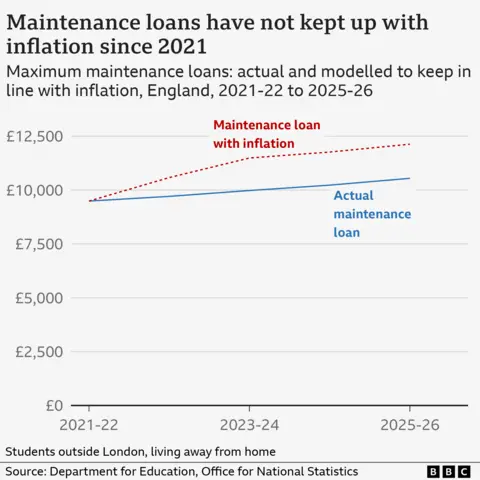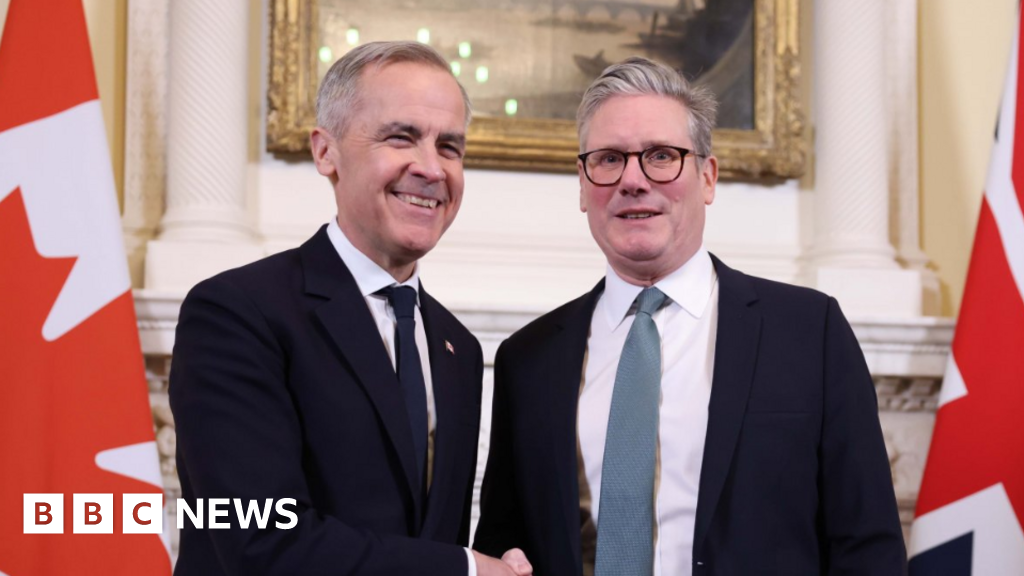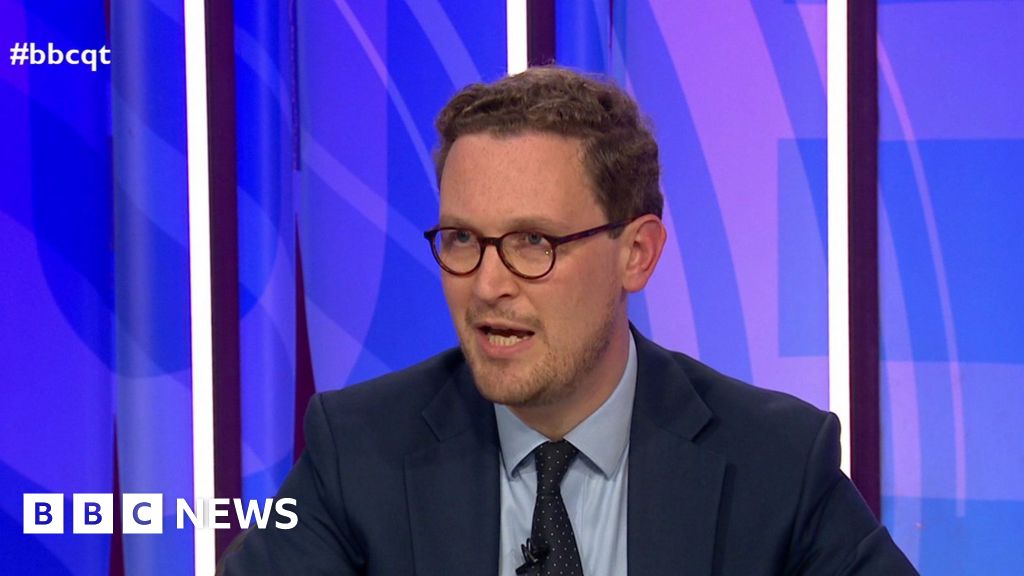ARTICLE AD BOX

 Getty Images
Getty Images
Tuition fees and maintenance loans will both be increasing in the 2025/26 academic year
UK students will pay more for university in England next year, as undergraduate tuition fees rise to £9,535 a year.
It is an increase of £285 on the fees, which have been frozen at a maximum of £9,250 since 2017.
Education Secretary Bridget Phillipson told MPs in Parliament on Monday that maintenance loans would also go up to help students manage the cost of living.
The National Union of Students called the tuition fees rise a "sticking plaster", but said higher maintenance loans "will make a real difference to the poorest students".
The announcement only affects fees and loans in the 2025/26 academic year.
Phillipson said the government would announce further "major reform" for long-term investment in universities in the coming months.
She said the government was having to "take the tough decisions needed to put universities on a firmer financial footing".
But she called on universities to "deliver better value for money for students and taxpayers".
Prime Minister Keir Starmer had said he wanted to abolish tuition fees altogether when he ran for the leadership of the Labour Party in 2020.
But in 2023, he said Labour was "likely to move on" from the pledge. And in this year's general election campaign he said he confirmed he would be doing so, as he wanted to prioritise spending on the NHS.
Conservative shadow education secretary Laura Trott called the tuition fee rise “a hike in the effective tax graduates have to pay”.


Next year both tuition fees and maintenance loans will be linked to a measure of inflation called RPIX, which counts the cost of everything except mortgage interest costs.
It is currently set at 3.1%.
That will increase maintenance loan caps from £10,227 to £10,544 for students living outside of London, and from £13,348 to £13,762 in London.
Maintenance grants, which were non-repayable, were scrapped in 2016.
The changes announced on Monday will affect students starting university next year, but also current students - although universities can have contracts that protect their students from fee hikes part-way through a course.
Students Shay and Zay, both in their first year studying product design at Manchester Metropolitan University, said higher fees could put off prospective students.

 Branwen Jeffreys / BBC
Branwen Jeffreys / BBC
Shay and Zay said higher fees could put students off university, but added that the cost of living was a more pressing concern
Zay said tuition fees were "already quite a big factor playing on a lot of people's minds" when deciding whether to go to university.
Shay said university was "already expensive as it is", but added that he was more worried about his maintenance money being able to cover the cost of living.
Vivienne Stern, chief executive of Universities UK, which represents 141 universities, said the government's decision was "the right thing to do".
She said the freeze in fees had been "completely unsustainable for both students and universities".
But Jo Grady, general secretary of the University and College Union, said raising tuition fees was "economically and morally wrong" and that the government was "taking more money from debt-ridden students" to support universities.


The changes come after growing concerns about the state of university finances in the UK.
The Office for Students, the higher education regulator in England, warned that 40% of universities have predicted a deficit in this academic year.
In July, Phillipson said universities should “manage their budgets” amid calls for the government to bail out struggling institutions.
Universities UK has previously suggested tuition fees would need to rise to £12,500 a year to adequately meet teaching costs.
But they also acknowledged that asking for that amount would seem "clueless" and "out of touch".
The government hopes that increasing maintenance support will help students with day-to-day living costs like food and accommodation.
But higher tuition fees and increased maintenance loans will mean students need to borrow more to go to university, and will leave with more debt.
The Department for Education will publish an impact assessment soon, alongside legislation setting out the changes. It will look at the impact of the changes on students' debt at graduation, and their repayments over time.
The tripling of fees in England in 2012 prompted widespread protests.
Since then, they have only increased once, in October 2017, when then-prime minister Theresa May announced a £250 rise.

 7 months ago
23
7 months ago
23








 English (US) ·
English (US) ·